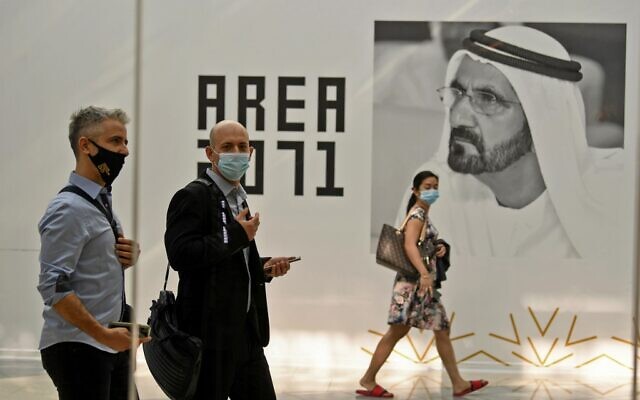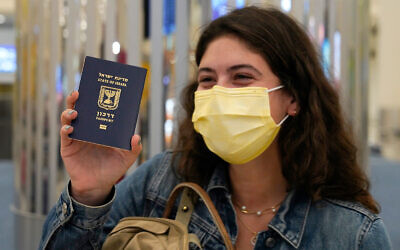Security officials reportedly concerned that Israeli tourists could be targeted by terror attacks in Gulf, in response to killing of top nuclear scientist

Israeli security officials are concerned Iran could attack Israeli tourists visiting the United Arab Emirates in retaliation for the assassination of the man said to be the Islamic Republic’s top military nuclear scientist, which Tehran blames on Israel, according to a television report on Sunday.
Multiple top Iranian officials have blamed Israel for the death of Mohsen Fakhrizadeh, the alleged mastermind of Iran’s rogue nuclear weapons program, and vowed to avenge his death. Israel has not officially taken responsibility for the assassination, though The New York Times, citing intelligence officials, said Jerusalem was behind the hit.
Iran’s cries for retaliation have prompted concerns for Israeli embassies and Jewish communities abroad and raised the prospect of cross-border attacks on Israel by Iranian proxies in Lebanon and Syria, among other scenarios.
Defense officials are also now wary that Israeli tourists to Dubai and Abu Dhabi could be targeted in a terror attack in the Gulf state, a country easily accessible from Iran, Channel 12 reported Sunday evening.
Security officials recently held a meeting on the safety of Israeli visitors to the UAE and have begun working with their Emirati counterparts to ensure the protection of Israeli tourists, the report said.
The UAE is expected to soon see an influx of Israeli tourists, following September’s normalization deal between the two countries.
Since the establishment of ties allowing Israelis to visit the Gulf, Israel’s Counter-Terrorism Bureau said there is a “basic concrete threat” in the UAE and Bahrain. That is the third-highest advisory issued by the bureau, after “very high concrete threat” and “high concrete threat.”
According to Sunday’s TV report, Israel is also anticipating that Iran could step up its cyberattacks on Israel’s water and electricity facilities. Attempts by Iran to breach Israel’s major infrastructure have increased in recent months, thus far unsuccessfully, according to the station.
Israel has also raised alertness in its embassies around the world in the wake of the assassination, according to reports Saturday. Jewish communities across the globe are also taking precautions, Channel 12 reported.

Fakhrizadeh died in a bombing and shooting attack outside Tehran on Friday.
Iran and Hezbollah have targeted Israelis and Jews around the world on multiple occasions — including two deadly bombings at Israel’s embassy and the main Jewish community offices in Buenos Aires, in 1992 and 1994 respectively — and Israeli and Jewish sites are seen as prime targets for reprisals following alleged Israeli attacks.
Tehran also has forces at its disposal surrounding Israel, including troops and proxies in neighboring Syria, Hezbollah in Lebanon, and Islamic Jihad — and to a lesser extent Hamas — in the Gaza Strip.
There has been no word so far of the Israeli military raising its alertness level along the country’s borders.
An opinion piece published by a hardline Iranian newspaper on Sunday suggested Iran should attack the Israeli port city of Haifa. Though the Kayhan newspaper has long argued for aggressive retaliation for operations targeting Iran, Sunday’s piece went further, suggesting any assault be carried out in a way that destroys facilities and “also causes heavy human casualties.”
As reported by The Times of Israel
